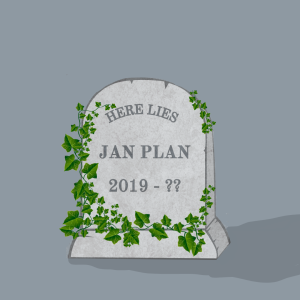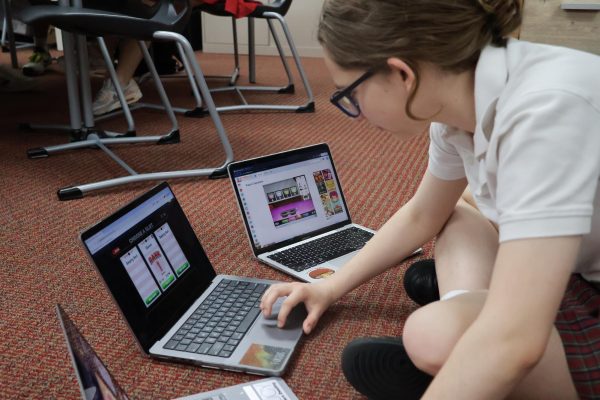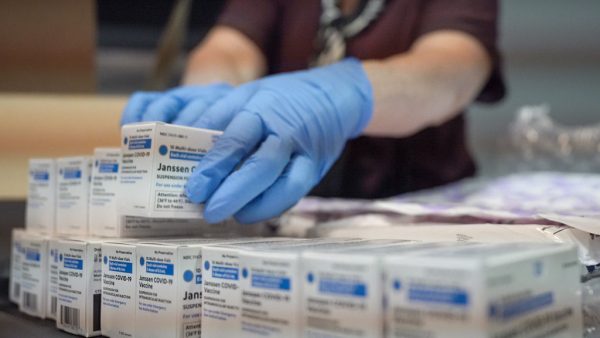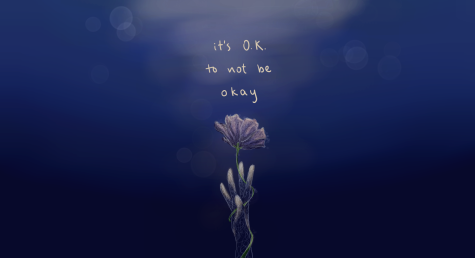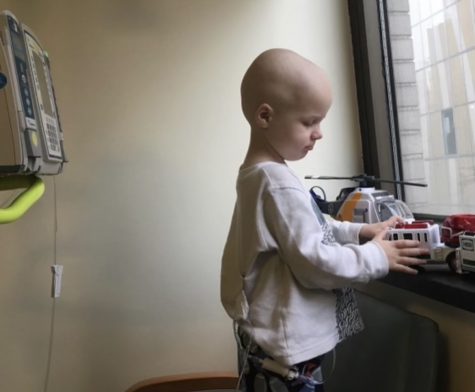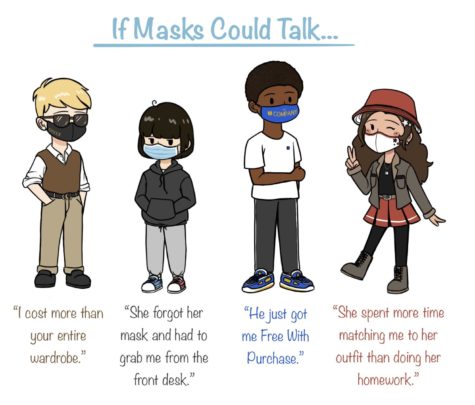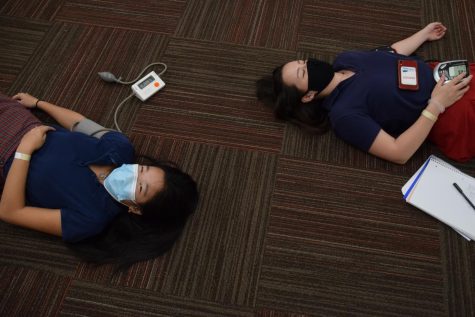Limited masks, protective equipment prompt SJS community to adapt

Due to the mask shortage, many doctors are still reusing N-95 masks.
May 20, 2020
For the past four weeks, workers at Blue Fish Pediatrics Greater Heights have had to ration personal protective equipment, conserving PPE resources for the long haul of the COVID-19 pandemic. Christina Propst, mother of junior Casey Propst and a pediatrician at Blue Fish, has been cycling though four N-95 respirators, masks designed to filter airborne particles.
“I know very, very few practicing physicians who even now have all of the PPE they really need,” Propst said.
Propst disinfects several items, including her groceries, phone and work laptop, with UVC light, a short wavelength of ultraviolet light. Using UVC light has been proven to disrupt the nucleic acids and therefore kill some coronaviruses, but not specifically SARS-CoV-2, the virus strain that causes COVID-19.
Propst must implement strict safety measures to properly use the masks. She wears a mask for every patient visit and uses one mask each day of the week, letting it rest and disinfect for the other portion of the week.
N-95 respirators protect against both droplets, larger particles spread by sneezes and coughs, and aerosols, small liquid particles suspended in the air, and thus are recommended for healthcare workers working directly with patients who have contracted COVID-19. Though N-95’s are preferably discarded after each use, because of the PPE shortage due to the COVID-19 pandemic, healthcare professionals are reusing N-95’s. Reusing N-95’s is dangerous because particles can get trapped inside and lessen the amount of protection the mask gives to the wearer.
According to the Centers for Disease Control, patients and healthcare professionals should use surgical masks, especially if N-95 respirators are not available. Though they do not protect against aerosols, surgical masks are effective in stopping droplets, from being spread by the wearer, and must be disposed of after each use.
It is recommended to reserve N-95’s and surgical masks, which offer the best protection against the virus, for medical workers who physically interact with infected patients. Authorities advise citizens to wear other face coverings, such as cloth masks, in public. Harris County Judge Lina Hidalgo instituted a mandatory mask order of at least 30 days as of April 27.
Harris County requires all citizens to wear a mask in public. Not everyone is able to get the supplies needed to make masks.
Freshman Molly Hennessy learned that The Center For Pursuit, a Houston non-profit serving adults with intellectual and emotional disabilities, was in need of masks. Hennessy has worked with The Center for the past three and a half years, so when employees at The Center notified her of their mask deficiency, she quickly got to work.
After buying, washing and ironing bandanas and hair ties, Hennessy assembled nearly 150 masks for staff and residents at the center.
While cloth masks do not offer the same level of protection as medical masks, such as N-95’s and surgical masks, they prove sufficient in hindering the spread of the virus if going outside is absolutely necessary.
“Wearing a mask could prevent the wearer from contracting the virus from other people sneezing, coughing or even just talking,” anatomy teacher Paula Angus said.
The CDC recommends that individuals wear cloth masks in situations when it is difficult to keep more than six feet away from others.
These types of masks are similar to bandanas and scarves, which can also serve the same function as cloth masks—containing coughs and sneezes. Cloth masks and homemade face coverings are designed to contain coughs and sneezes and prevent transmission of COVID-19 but cannot protect the wearer against aerosols. Cloth masks can be reused, and it is advised that they be washed after every use.
Angus cautioned that wearing any type of mask is no replacement for social distancing because masks do not offer complete protection against the virus.
“Viruses are extremely small,” Angus said. “Even if wearing a mask, social distancing guidelines should still be adhered to.”



